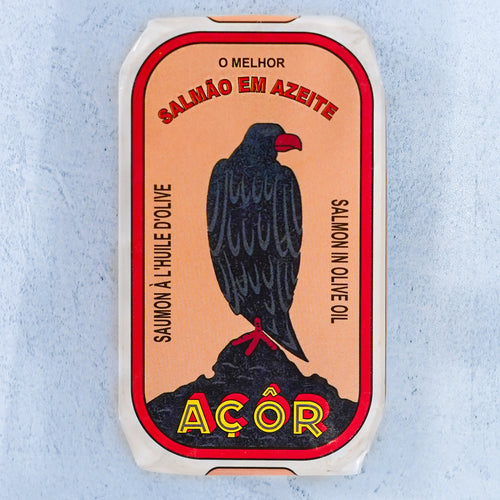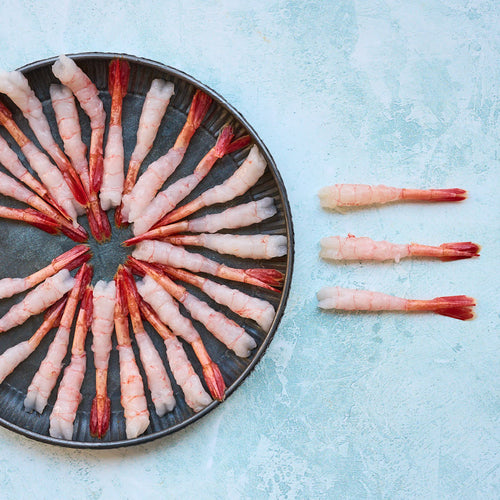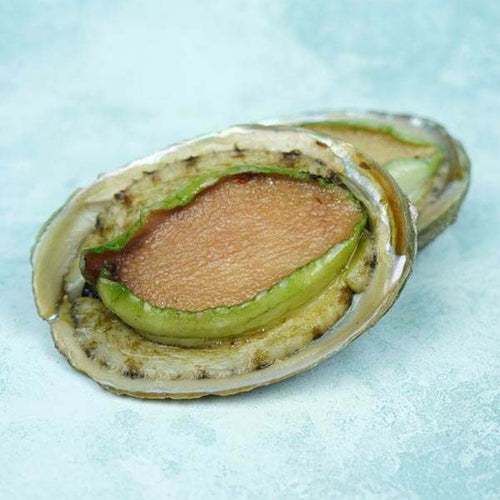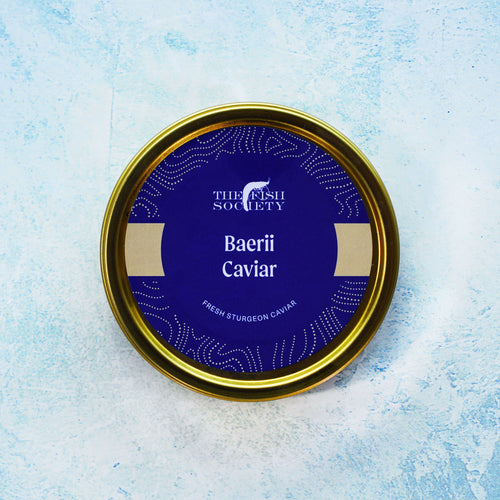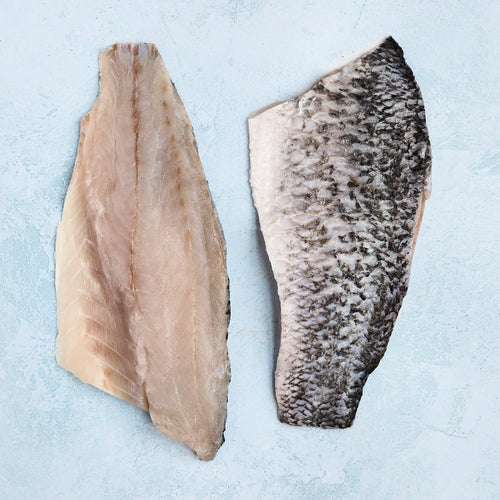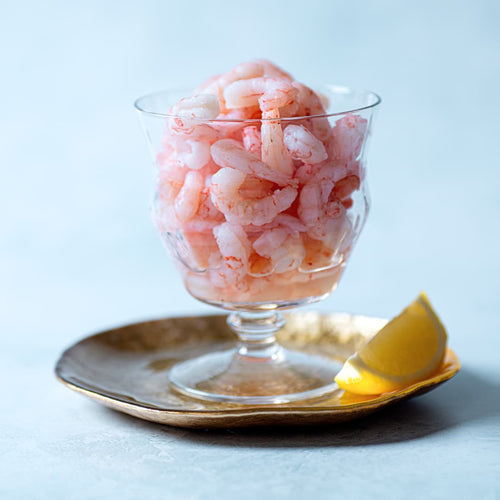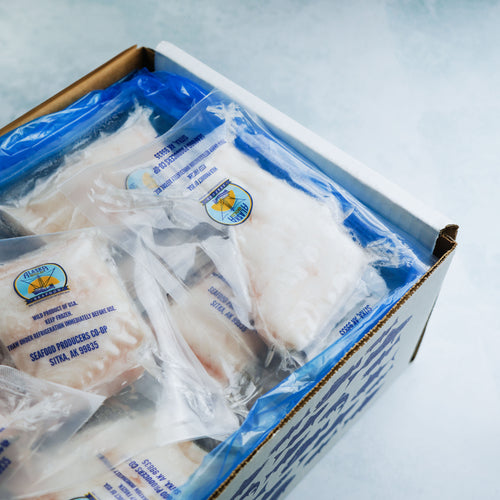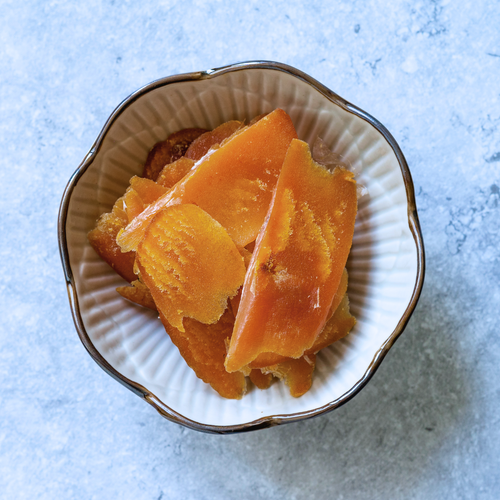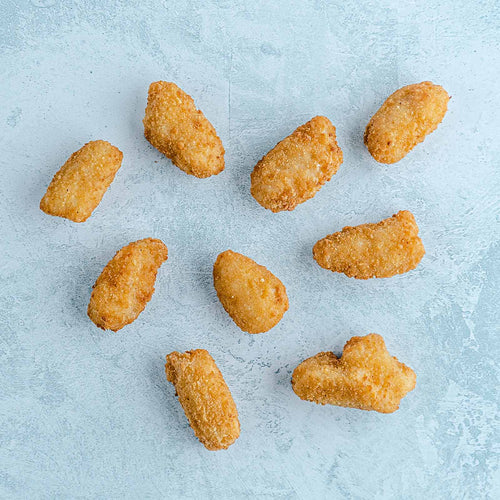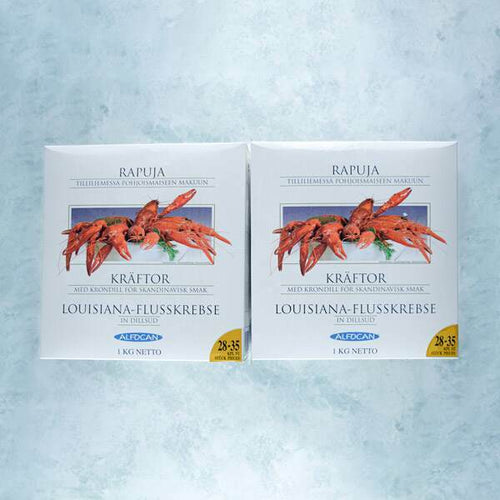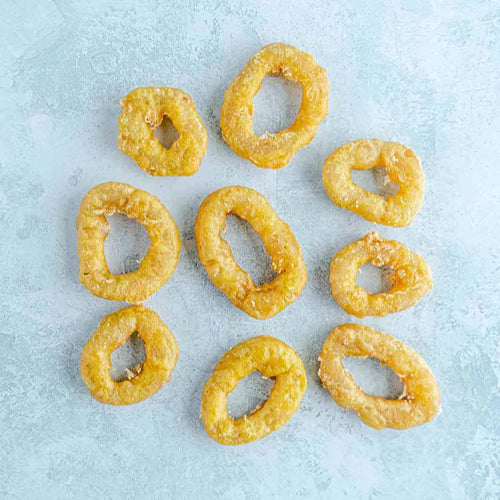
Sustainability
We are often asked “Which of your fish are sustainable?” We wish it was that simple.
Minus 99%
A hundred years of overfishing - intensified over the last 40 years by technology and globalisation - has reduced the stocks of many species of fish to critically low levels – in some cases by 99%.
Astonishingly, there is still meaningful scope for a serious recovery. Fish are fantastically prolific - mature female fish produce tens of thousands and often millions of eggs every year. By 1970, Pacific salmon was threatened by overfishing. But careful nurturing of salmon eggs ever since has enabled the catch subsequently to double.
Mainly Farmed
Today, most of the fish mankind eats is farmed. This takes some pressure off wild stocks, yet fish farming sometimes seems no less of a threat than overfishing: Scottish lochs full of waste, mangrove swamps cleared for prawn farming, farmed hybrids escaping to mix genes with wild stocks. The good news, as fish farming has become the dominant source of seafood, farmers are getting cleaner and smarter.
Complicated
Fish is a complex global industry. Our fish may pass through six intermediaries before it reaches us. We might routinely buy the same item from three suppliers each with its own supply chain. We’re a small business with a wide range. We don’t believe any company retailing a range of fish could claim to be 100% sustainable.
It is not very comfortable to be honest with you about the challenges presented by sustainability.
Slow Recovery
And yet, there are some positives. Overfishing began to be addressed 60 years ago when Iceland declared a 200-mile limit, expelled our trawlers and restricted its own. In the nick of time, and by a two steps forward one step backward process, politicians and fishermen are getting to grips with overfishing. Even China - probably the biggest plunderer of fish stocks – has officially acknowledged that the game is up.
Reviewing Ourselves
Starting from spring 2021, we are reviewing all our lines of fish with a view to improving our own sustainability rating. Doing this properly is a big job and we have given ourselves 12 months to complete it. As each product is reviewed, we’ll put our findings on its product page. Arising from this process, as of June 2021 we decided to discontinue sales of freshwater eel (including smoked eel). Our eel products will be delisted when current stocks are sold.
Donations
Below are some marine organisations that we have made charitable donations to.
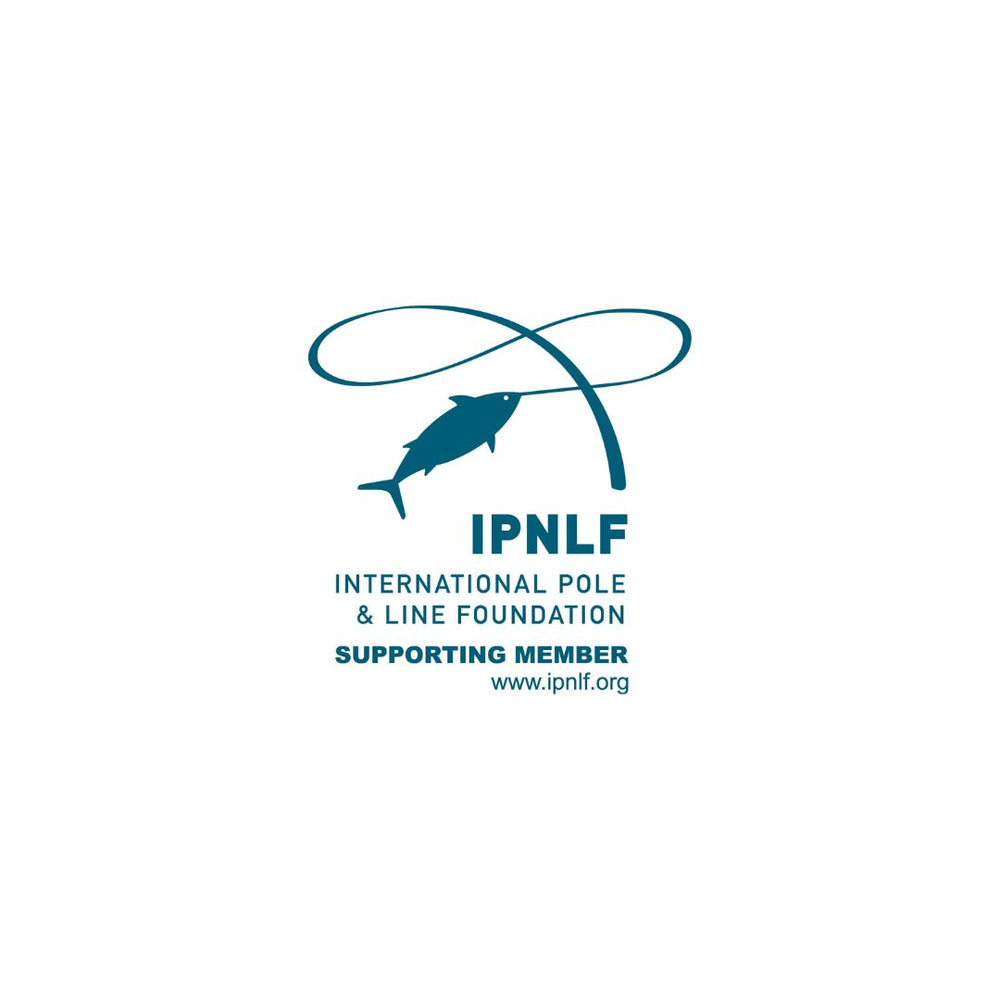
International Pole & Line Foundation
The Fish Society & IPNLF believe in the future of a thriving natural world through empowering sustainable one-by-one fisheries which use pole-and-line, handline and troll fishing methods. By connecting small-scale fishers with the industry (us) and helping them to reduce their environmental impact we help to make sustainable tuna more readily available, protect ecosystems and safeguard the livelihoods of local fishers.
IPNLF’s work to develop, support and promote one-by-one tuna fisheries is subsequently fully aligned with the UN 2030 Agenda for Sustainable Development and the Sustainable Development Goals. We believe effective and equitable global governance is essential to protect and restore the ocean, and this should be achieved by ensuring the participation of local and coastal communities in decision-making processes.
New In
Find exactly what you want. We sell 200 kinds of fish - way more than anyone else.
Shop New In
